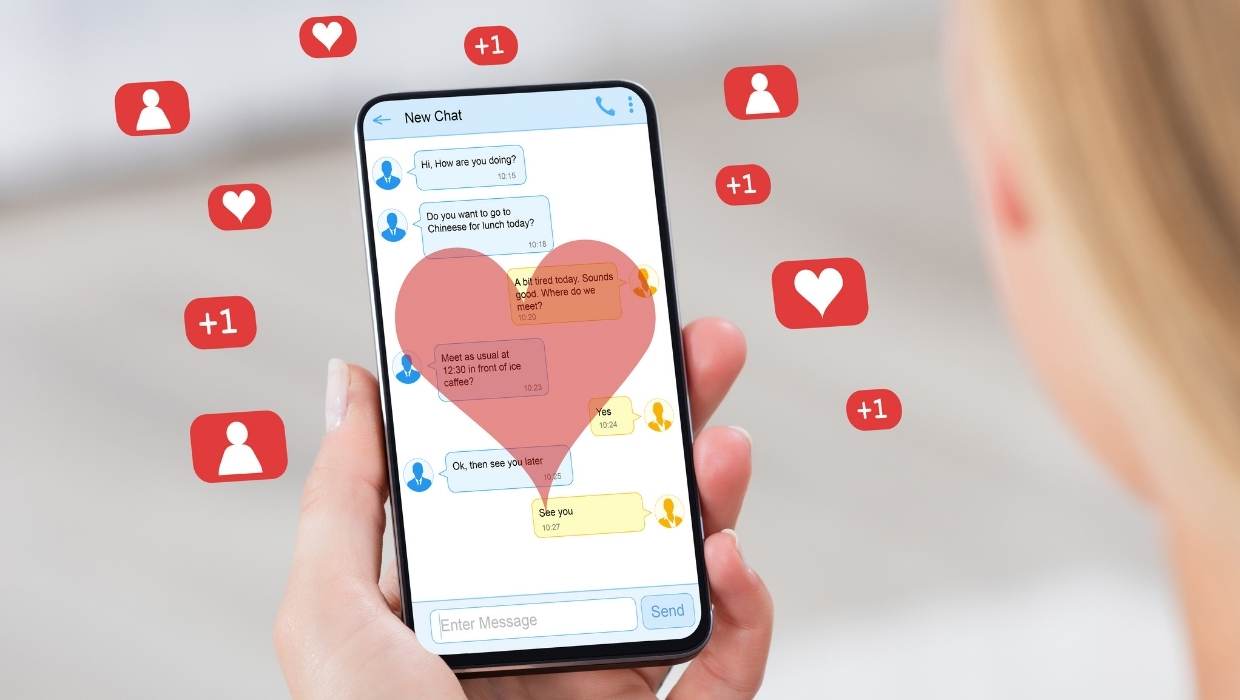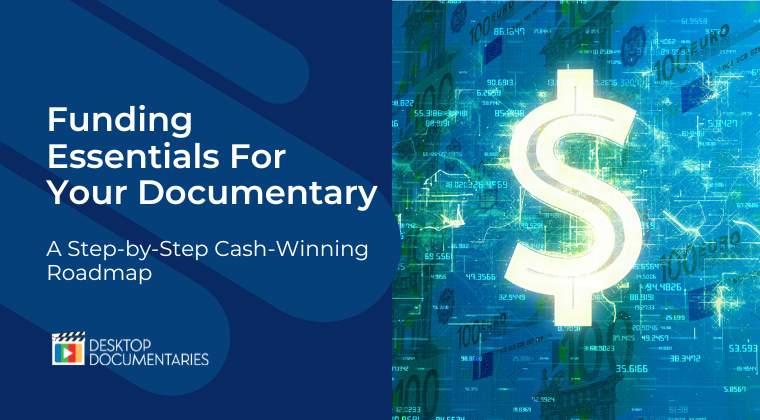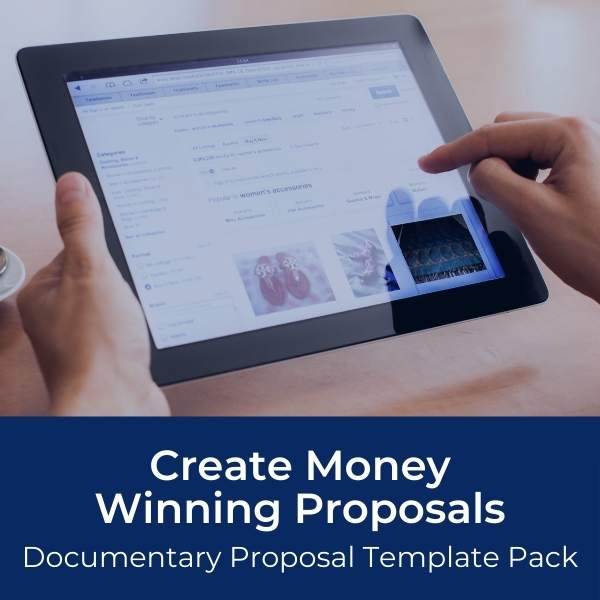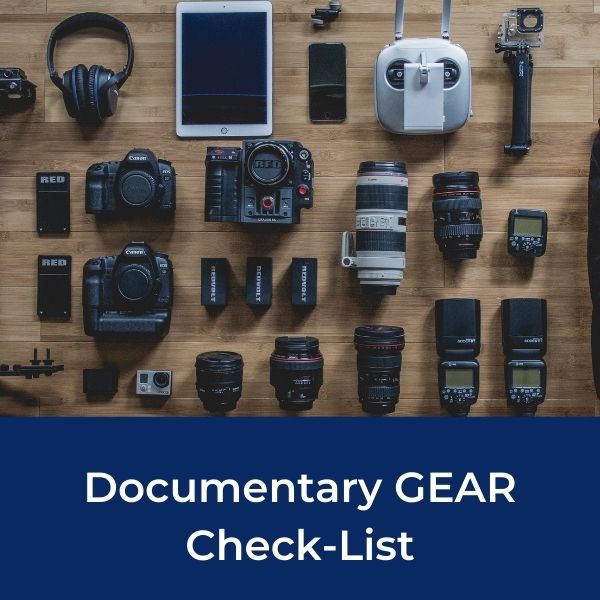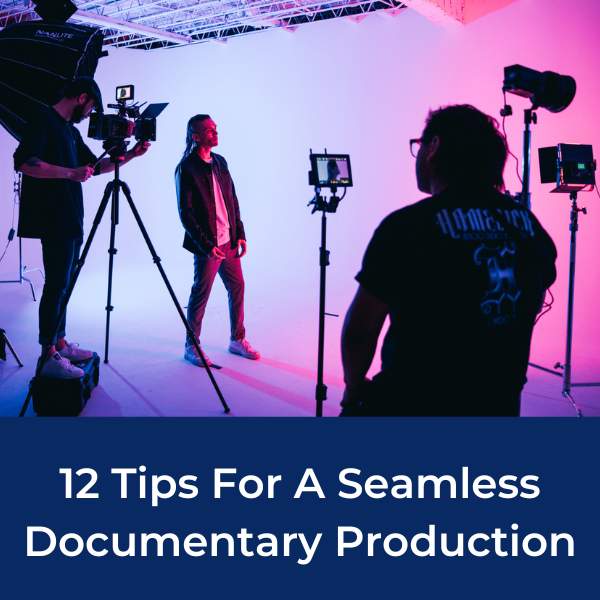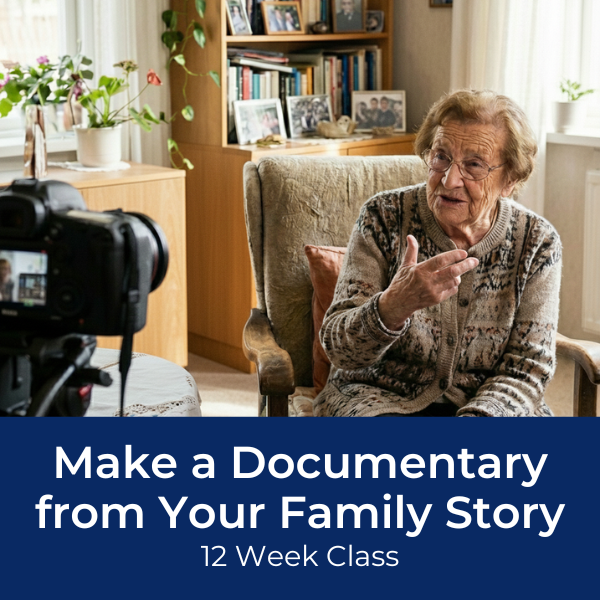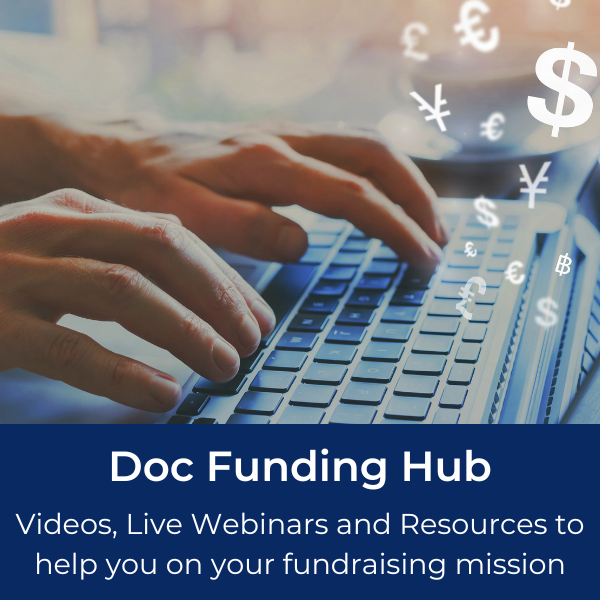Documentary Funding Ideas
10 Sure Fire Ways To Raise Money For Your Documentary
Documentary funding can be one of the most challenging aspects of making a film.
The whole process was so grueling during the making of my first documentary that it became my mission to make sure NO OTHER filmmaker had to suffer the same way.
Below are some of the top funding ideas for documentary filmmakers:
10 Documentary Funding Ideas
Funding Idea #1: Self-Funding
Savings, credit cards, personal loans and 401K's. Sometimes, there's just no other way when you've got your documentary idea and you're ready to go!
Funding Idea #2: Friends and Family
This documentary funding idea is a very real option for many first-time filmmakers. Helloooo Uncle Edmond!
Funding Idea #3: Email Campaign
Sending out a series of emails to your personal network is a great way to spread the word about your project and get some quick donations. (Make sure you have a Paypal or Venmo account set up to accept online donations).
Typically, you don't want to send just one mass message asking for a one-time donation.
It's a process.
First, you want to engage people in the project. What about your documentary might attract their specific interest? Keep them updated and then offer incentives and reasons to donate.
See examples of a documentary fundraising email campaign here: How We Raised $40,915 In 35-Days For Our Documentary Sequel
Funding Idea #4: Wealthy Individuals
It's not enough to find someone who has a lot of money and ask them to donate.
The person must have some kind of pre-existing natural connection with either YOU or the subject matter of your film.
Your rich uncle may not care a hoot about environmental protection of seagulls but he believes in YOU so he may donate.
Or perhaps there's a wealthy philanthropist who supports the local Sierra Club.
You know that person is already committed to the cause and now you just need that person to understand how your film will benefit the cause.
Build your fundraising confidence (and learn the RIGHT WAY to approach wealthy donors) with our documentary fundraising course: Funding Essentials For Your Documentary: Your Cash-Winning Guide.
Funding Idea #5: Get THAT Person Talking
Consider this step an extension of the last. If you can develop a connection with a wealthy AND influential public figure - you’ve got a fast track to funds. Ideally, this person ALREADY has a follower base and is active online.
The key idea here is to approach the right person. This could be a well-known activist, someone who is personally involved with your story or subject, or your best friend who just happens to be an “influencer” for the cause.
Public figures typically have experience in crafting messages in order to get a response. If they say the word, their “people” tend to listen.
Funding Idea #6: Filmmaking Grants
Foundations big and small will fund your project if it’s the right fit.
Browse this list of Documentary Film Grants.
Be prepared to fill out paperwork and have a documentary proposal and documentary budget ready (your pitch MUST be tight with an accurate budget and a compelling proposal).
Check out these 10 helpful hints for writing a cash-winning documentary grant proposal.
Usually grants are reserved for a more experienced team or a promising filmmaker who comes highly recommended from credible sources. But if you’ve done your homework and your pitch is professional and thorough, you’ve got an excellent shot.
A great resource for filmmaking grants is Candid (formerly The Foundation Center) or the International Documentary Association's Grant Directory.
Or try out Grantable, a new AI tool that makes grant-writing easy.
Funding Idea #7: Crowdfunding
Highly recommended for documentary filmmakers. This involves pulling together a “crowd” to fund your project or at least some aspect of it.
Crowdfunding is a term that describes an online fundraising campaign to raise a set amount of money in a set amount of time from a large group of supporters.
Three great options include KickStarter, Seed&Spark and IndieGoGo.
Crowdfunding Case Study: How We Raised $40,915 In 35-Days For Our Documentary Sequel

Funding Idea #8: Special Events
You can raise thousands of dollars through events such as concerts and fundraising houseparties.
Beware that events can be very time consuming and you can potentially lose money if you overspend on food, decorations, etc.
So, only do this if you can get a sponsor to cover the
majority of the expenses.
Funding Idea #9: In-Kind Donations
Getting donated goods is just as good as cash!
So, don't hesitate to approach businesses such as hotels, print shops, rental car agencies and restaurants to let them know about your project and ask for help.
It not only helps you, it's great promotion for them!
Funding Idea #10: Social Media
Facebook, TikTok and Instagram are phenomenal tools to communicate with your community of supporters about your project and to ask for money when the time is appropriate.
Social media should not be used primarily for fundraising. It's a way to stay in touch with people who are interested in your project so that when you do need funding, you've got a base of support engaged and ready.
One idea is to host a Q&A style “live” event, in which followers can ask more about the story and the people behind it.
Social media plus crowdfunding is a powerful combo!
Learn how to build an audience for your documentary.
Remember This: Documentary Funding Ideas
Money is everywhere and there are all kinds of ways to get it.
In general, approaching individuals – people you have a relationship with and who have a natural connection to the project – will be your best source of funding.
Picking up the phone and making a one-on-one ask for a donation is one of the most powerful and effective ways to get funding.
Never underestimate a personal phone call!!!
Looking for more documentary funding ideas?
Check out our full collection of Documentary Pitch Templates, Fundraising Courses and Budgeting Templates.
Documentary Fundraising Resources:
- How to Raise Money for Your Documentary
- How To Create A Documentary Pitch Deck (with Examples)
- How To Create An Accurate Documentary Budget
- Documentary Film Grants
Recommended For You
Ready To Make Your Dream Documentary?
Sign up for our exclusive 7-day crash course and learn step-by-step how to make a documentary from idea to completed movie!


